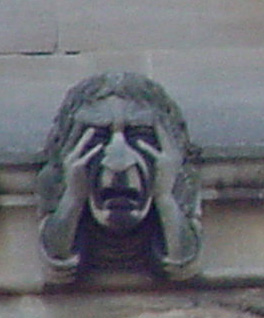Philosophy of Law And Social Science
JLS 601
Spring 2006
Professor David Fagelson

|
||||||||||||||||||||||||||
Philosophy of Law And Social Science |
||||||||||||||||||||||||||||||||
JLS 601 Spring 2006 |
|
|||||||||||||||||||||||||||||||
 |
|
|||||||||||||||||||||||||||||||
| Journal Notes Viewer | ||||
|
||||
| Week One | : From Metaphysics To Reason |
Locke | An Essay Concerning Human Understanding | |
| Hume | An Enquiry Concerning Human Understanding | |||
| Week Two: | The Derivation of Reason | Kant | Critique of Pure Reason | |
| Week Three | Logical Positivism And The Foundations of Truth | A.J. Ayer | Language Truth And Logic | |
| Week Four | Verification And Explanation In The Empirical World | Carl Hempel | Philosophy of Natural Sciences | |
| Max Weber | Science As A Vocation | |||
| The Methodology of Sociology | ||||
| Week Five | Science And History: Knowledge And Change | Thomas Kuhn | The Structure of Scientific Revolutions Chaps One - Eight |
|
| Week Six | Social Science And Social Meaning: From Prediction To Explanation | Peter Winch | The Idea of A Social Science And Its Relation To Philosophy | |
| Intro-Chapter One Chapter Two Chapter Three-Four |
||||
| Week Seven | Hermeneutic Theories of Understanding | Charles Taylor | Philosophy And The Human Sciences | |
| I Introduction And Chapter One | ||||
| Chapters Three And Five | ||||
| WeekEight | Hermeneutics Continued (with counter arguments and implications) | Charles Taylor | Language And Human Nautre | |
| Human Agency | ||||
| Ludwig Wittgenstein | Philosophical Investigations | |||
| Milton Friedman | The Methodology of Positive Economics | |||
| WVO Quine | Two Dogmas of Empiricism | |||
| Week Nine | Critical Social Science And Post Modernism: From Interpretation To Power |
Jürgen Habermas | Knowledge And Human Interests | |
|
A Social Scientific Concept of Crisis (from Legitimation Crisis) |
|||
| Karl Marx | The German Ideology: Part I Critique of Feuerbach | |||
| Michael Foucalt | Archaeology of Knowledge | |||
| Stanley Fish | How To Recognize A Poem When You See One | |||
| Paul A. Boghossian | What the Sokal Hoax Ought to Teach Us | |||
| Week Ten | Do Historians Report Facts? | R.G. Collingwood | Human Nature And Human History | |
| Erik Erikson | Young Man Luther | |||
| Chapter One - Three - Six - Eight | ||||
| Evans | In Defense of History | |||
| Chapter Three - Four - Five | ||||
Expert Witness Report by Richard J. Evans in the case of Irving vs. Lipstadt and Penguin Books |
||||
| Week Eleven | ||||
| Week Twelve | ||||
| Week Thirteen | ||||
| Week Fourteen | Law And Objectivity | Dennis Patterson | Law And Truth | |
| Mark Tushnet | Following The Rules Laid Down | |||
Symposium On Dworkin's |
||||
| Ronald Dworkin | Objectivity And Truth | |||
| Simon Blackburn | Commentary | |||
| Nick Zangwill | Commentary | |||
| Michael Otsuka | Commentary | |||
| Ronald Dworkin | Response | |||
 |
||||
| Stanford Encylcopedia of Philsophy | ||||
| Episteme Links | ||||
| Philosopher's Web Portal | ||||
| Guide To Philosophy On The Internet | ||||
| The Galilean Library -- What Is Philosophy | ||||
| Routledge Encyclopedia of Philosophy | ||||
| Philosophy Around The Web | ||||
| The Royal Institute Of Philosophy | ||||
 |
||||
| Mid Term Exam | ||||